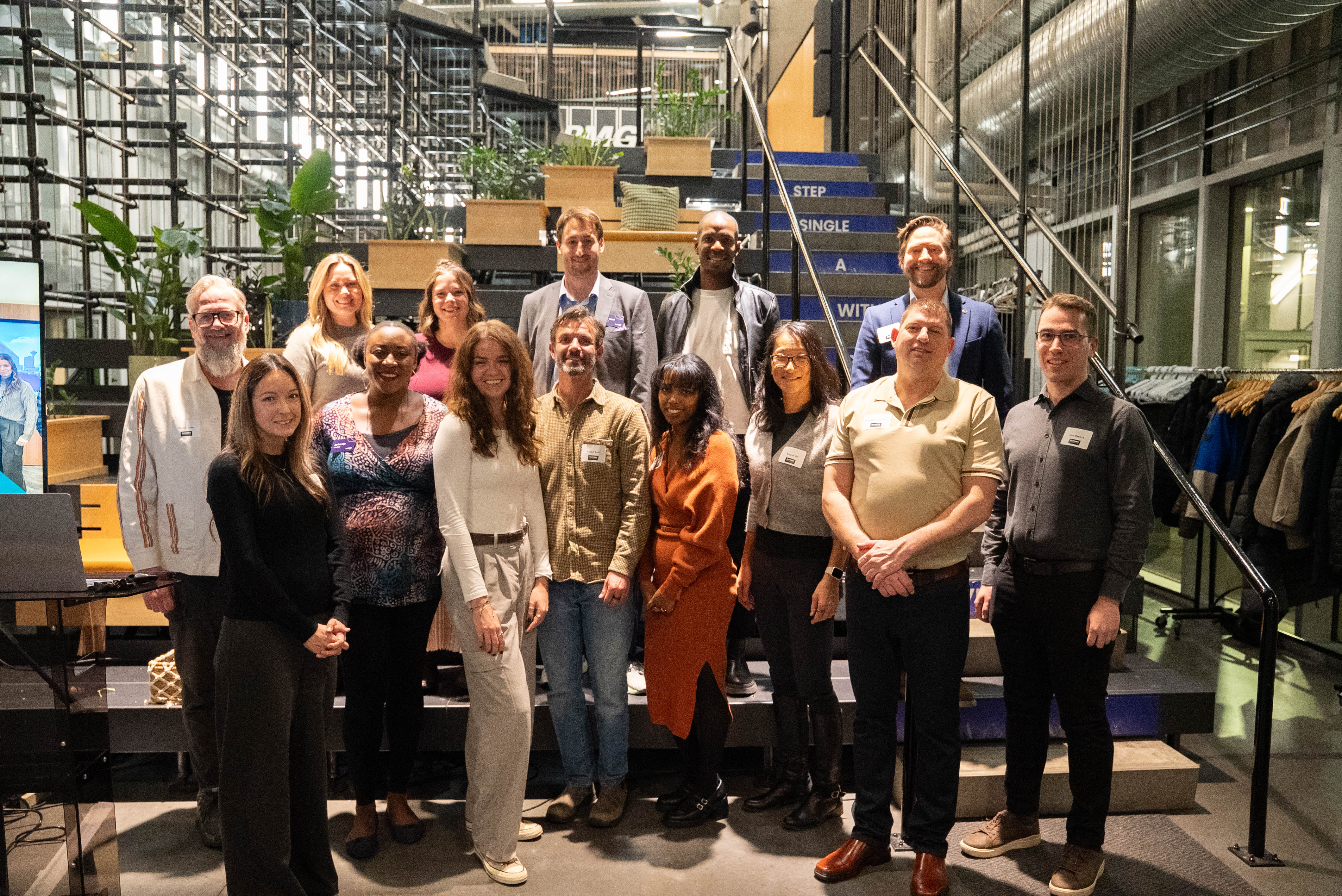Incubator Feature: Hong Phuc (HP) Nguyen

Platform Calgary is a non-profit, member based organization. Our mandate is to bring together the resources of Calgary's tech ecosystem to help startups launch and grow at every step of their journey, from ideation through to scale.
More about Platform CalgaryHong Phuc (HP) Nguyen is the Founder of Kibbi, a local job community that makes it easier for businesses to connect to local job seekers, especially eligible, ready to work newcomers. Stemming from HP’s personal experience finding work in a new country, Kibbi is focused on lowering barriers for job seekers.
After moving to Canada in 2020, HP became aware of the intricacies that come with trying to find work in a new country.
And that wasn’t for a lack of experience. Beyond a Bachelor of Commerce and MBA, HP has more than eight years of marketing and business development experience in a Fortune 500 company, Japan Tobacco International, where she was promoted to the youngest Brand Manager at age 24. At Lynk Global, a VC-backed startup, she managed a regional team across four countries, doubled their growth and founded the Vietnam office.
But navigating the job search in a new country is hard.
HP’s first role in Calgary was in a non-profit as a chair of the Calgary Vietnamese Women Association, which gave her a first hand account of some of the challenges newcomers face when trying to find work.
Couple that with the labour shortage at the time, and HP identified a problem that needed solving.
“In 2021, I had this idea – it wasn't really formed into Kibbi – but it was an idea just to make it easier for the community to find jobs.”

Humble beginnings
Kibbi started as a community project, with a goal of lowering barriers that many newcomer job seekers face. These include “finding a job near home, lack of transportation, not speaking the language, barriers to understanding the job listing or knowing who’s who,” she explains.
“Me and seven other people, immigrants and international students, all of us said as long as this helps 100 people find jobs, we think it’s okay.”
After deciding an app was the best way to go, she tapped into her personal network and reconnected with a highschool friend who believed in the idea and wanted to help. She was able to identify the resources needed, and they slowly built up the team, starting with international students that HP connected with on social media.
“We are focusing on developing easy-to-use tech that connects people fast and lowers barriers,” she says. “What we're trying to build is really the LinkedIn for hourly job seekers.”
The first prototype was built with the help of feedback from job seekers and employers who shared their experiences – highlighting challenges and ways to improve.
To validate the product, HP chatted with many immigrants, to understand their pain points. She spent lots of time chatting with users in Uber rides, at coin laundry stores, supermarkets and churches.
“When I shared it with one of Uber drivers, he'd lock the door and say, ‘tell me how to do it, I want to show my wife!’”
“So we're like OK, this thing works.”
From there, Kibbi was pitching to nonprofits and other relevant associations with communities who could benefit.
With a focus on hourly and entry-level work, the idea behind Kibbi is that folks who have a hard time breaking into the market – immigrants and international students – can have a less cumbersome experience to land that first job to feel more settled in a new country and contribute to the economy fast. The app also allows inclusive employers to proactively connect with available local workforce rather than waiting for applicants.
Imagine, for instance, a basic-English speaking refugee mom from Syria (refugee women are the most challenged demographic among newcomer segments) who can now easily find local jobs in her neighbourhood, near her kid’s childcare, and the English school where she is upskilling. She is at a much greater advantage having these resources nearby – having help understanding the job description and communicating with employers in Arabic is just one of ample benefits.
What’s next
Following the MVP launch last June, the number of app downloads and key partnerships have been trending up with strong word-of-mouth from communities.
A big milestone was raising 895K – more than the original ask of 800K – in a less than favourable market, thanks to The51’s Fund II, Viewpoint Partners and angel investors.
Being an immigrant herself, as well as a visible minority and female founder, Calgary’s been a welcome homebase to start and grow her business.
That said, knowing there are cities with high immigrant populations who could benefit from tools like Kibbi, HP has plans to expand nationwide.
Another big goal is to hire on some of their early team members full time (some of whom HP found on Kibbi!).
And to get there, she’s been leaning on Platform’s Incubator program. She says talking to people who have been where she is now has been incredibly valuable.
“The nature of Calgary is a very small community. There are pros and cons to that but getting the right people to support you is so important. Having someone open the door first makes it easier.”
Kibbi is part of Platform’s first Incubator cohort. This program helps founders move their startups from experimentation to a process-driven business by working closely with an entrepreneur in-residence, a community of mentors and other startup founders to scale their business over 18 months. Learn more about the Platform Incubator program.
Published on
April 3, 2023
Tags
Explore more posts

For Startups
Celebrating Platform Incubator Cohort 4: A Year of Growth, Grit, and Game-Changing Momentum
Over the past 12 months, the founders in Platform Incubator Cohort 4 proved exactly what’s possible when determination, discipline, and community come together. These entrepreneurs navigated uncertainty, refined their products, pursued market clarity, and pushed their companies forward with conviction—and the results speak for themselves.

For Investors
What Emerging Managers Need to Know About Securities Law
For this chapter, Audaxa Ventures sat down with the investment management law team at the Calgary office of Borden Ladner Gervais LLP (BLG) to unpack the legal journey every emerging fund manager faces. We approached this conversation not as lawyers, but as operators, asking the questions we wish someone had answered before our first close.

For Ecosystem Builders
Platform Calgary Announces Leadership Transition
Platform Calgary is entering a new chapter as we announce the upcoming departure of our President and CEO, Terry Rock, effective October 14, 2025. Terry will be moving into a new role within Alberta’s growing tech ecosystem.






